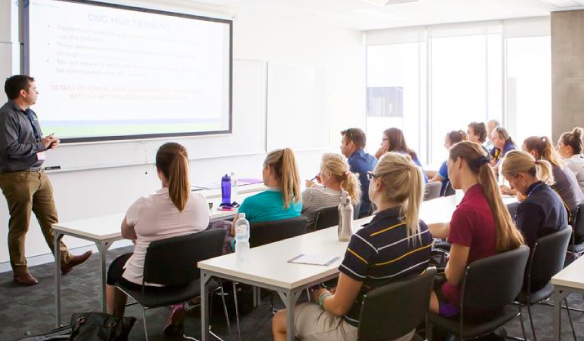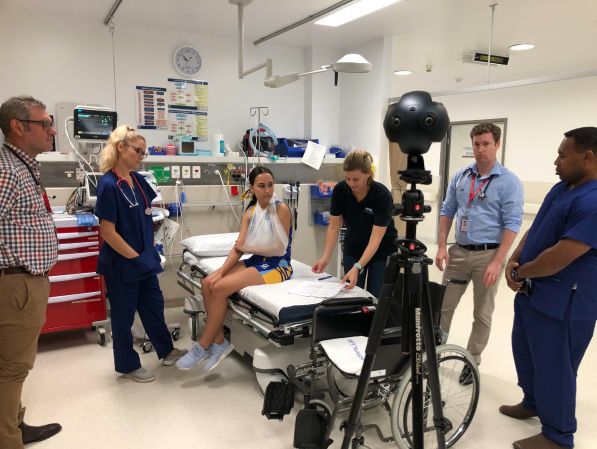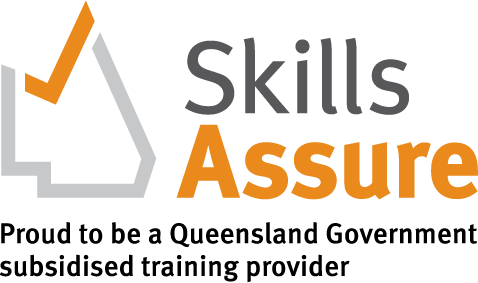Do you get a thrill from helping others? Are you naturally organised or interested in the medical field? Becoming an Assistant in Nursing (AIN) might just be the career path for you.
In a nutshell, an AIN supports Registered Nurses (RN) and Enrolled Nurses (EN) with their daily duties. This support can include anything from reporting patients’ conditions to helping with hygiene procedures.
The Health and community services sectors are the largest growing industries in Australia, estimated to grow by over 20% over the next five years.
AINs relieve some of the pressure on our medical staff and assist in the provision of essential care for Australian patients.
While you can choose to remain an AIN, there are also plenty of opportunities to develop your skills and pursue a career as a registered nurse. Keep reading to learn how to become an assistant in nursing in Australia.
Quick links:
- What is it like to be a nursing assistant in Australia?
- What qualifications do I need?
- What are the expected roles and responsibilities of an AIN?
- What skills will I learn when I become an AIN?
- How long does it take to become an AIN?
- What are the next steps I can take after becoming an AIN?
- Why study with Connect ‘n’ Grow?
- Unlock your potential today!
What is it like to be a nursing assistant in Australia?
While it is a highly rewarding role, being an AIN can be physically and mentally challenging. You are often up on your feet for most of the day and helping patients who cannot move independently. You will also be responsible for managing difficult scenarios with resilience, such as supporting grieving family members or distressed patients.
Time management will be a significant component of your success, as you are required to study alongside work. Your mandatory nursing education programs will ensure you know how to administer medications, check blood pressure, clearly communicate with care teams, and more.
Yes, being an AIN can be hard work, but with the proper dedication, passion and support, you will have the opportunity to impact people’s lives positively. Most hospitals and patient care facilities boast a healthy work environment, as you must depend on each other to get the job done. Continue reading to learn how to become an assistant in nursing.
What qualifications do I need?
To become an assistant in nursing, you will need to complete a HLT33115 Certificate III In Health Services Assistance. This course covers a range of factual, technical and procedural knowledge to aid health professional staff in the care of clients.
By the end of your course, you will have completed 80 hours of work experience and learned how to:
- Recognise healthy body systems
- Provide quality, personalised support and service
- Promote responsible behaviour
- Uphold Aboriginal and/or Torres Strait Islander Cultural Safety
- Interpret and apply medical terminology
- Comply with infection prevention and control policies and procedures
- Assist with nursing care in an acute environment
- Transport individuals
- Assist with movement
Interested in learning more? Connect ‘n’ Grow offers Health education and training to schools, workplaces, and individuals. Find your ideal pathway today.
What are the expected roles and responsibilities of an AIN?
AINs are responsible for many allocated tasks to ensure a clean and comfortable environment for patients, staff and visitors. These duties can involve:
- General patient hygiene (showering, bathing, sponging, skin care, shaving).
- Mouth and denture care.
- Cleaning eyes, ears and relevant accessories (glasses, hearing aids).
- Bed making and changing.
- Toilet assistance (provision, removal and cleaning of bedpans and urinals).
- General walking assistance and support mobilisation.
- Body and posture positioning.
- Patient movement, behaviour and condition observations and reports.
- Patient meal preparation and distribution.
- Application and removal of patient clothes and compression stockings.
- Simple wound dressings.
- Last office/care of the deceased.
- Collection of clinical data.
- Patient weight and measurement reporting.
What skills will I learn when I become an AIN?
AINs acquire many fundamental work and life skills throughout their career. For example, you will learn to;
- Effectively liaise between nurses, doctors, patients, and relatives using clear yet empathetic communication.
- Manage numerous duties throughout the day by multitasking and prioritising.
- Respond instead of reacting to diffuse or solve unexpected or difficult situations.
- Improve shift work tolerance as you train your brain to run on different sleep patterns.
- Discreetly provide a quality service in sensitive environments.
In addition, your assistant in nursing education program and practical experience will equip you with knowledge regarding:
- Workplace Health and Safety (WHS).
- Infection control.
- Basic health screening and checks.
- Health promotion and communication.
- Maintaining a high standard of service.
- Working with diverse people.
- Supporting personal wellbeing in the workplace.
- Routine stock maintenance.
If you’d like to speak to a real person about how to become an assistant in nursing, reach out to our friendly team today.
How long does it take to become an AIN?
At Connect ‘n’ Grow, students can receive their AIN qualification in 6 months if they keep to their training schedule, attend the required workshops and attend the mandatory 80 hours work placement.
What are the next steps I can take after becoming an AIN?
Becoming an AIN is often the first step many nurses take in their health services career. After completing an entry-level position, you will usually discover which specific role or sector you wish to pursue. These can include;
Aged Care
Aged care is an important industry that offers many employment opportunities for AINs, as many elderly patients require constant care and supervision. Working in Aged Care requires a high level of patience, attentiveness, sensitivity and respect and can be incredibly rewarding when done right.
Enrolled Nurse
ENs work under the supervision of a registered nurse. Becoming an EN requires finishing a 2-year Nursing Diploma. This course requires a lot of hands-on training as you learn and strengthen core competencies in nursing. It is the ideal pathway to becoming an RN as you gain valuable experience, guidance and knowledge from your assigned mentor.
Registered Nurse
To become RN, you must complete a 3-year Bachelor of Nursing degree. Most RNs will go on to specialise in a particular clinical sector after gaining experience in various types of healthcare settings.
If you’d like to discuss further your pathway options or need advice on which would be best for you, contact us today. We always place your best interest at the centre of our decision-making.
Why study with Connect ‘n’ Grow?
At Connect ‘n’ Grow, we believe in giving every person an opportunity to do and be more, regardless of their background or socio-economic status. The diverse working environment we have shaped reflects our growing tribe. Together, we have built an efficient Health and Humans Services workforce that offers quality opportunities in multiple fields, industries and locations across Queensland, South Australia and the Northern Territory.
As a result, our courses have a completion rate of over 90%— making us one of the best RTOs in the industry.
We provide:
- Solid foundation skills to enter the health workforce.
- Quality, industry-relevant training.
- Opportunities to engage with universities, training and employment providers.
- Opportunities to increase health literacy in Australia
Unlock your potential today!
Now you know everything about how to become an assistant in nursing, are you ready to kickstart your journey? There’s no better time than now to start making moves for your future. Contact us today to get started!
Not sure if this is the right pathway for you? Why not explore our other courses by clicking the link below?
*Students will need to complete School-Based VET and other Senior subjects to fulfil entry requirements into a tertiary degree.






